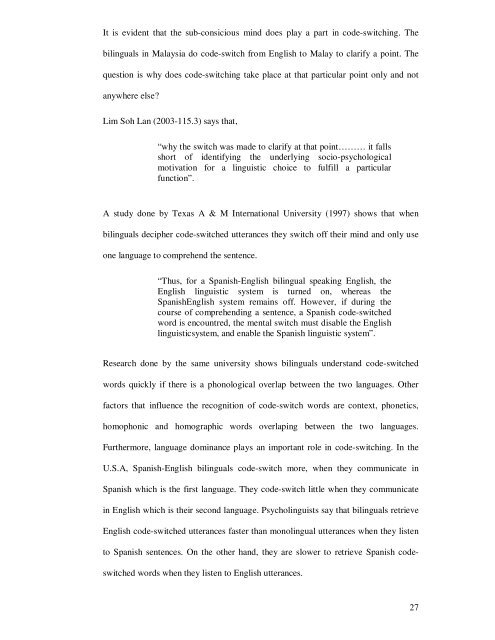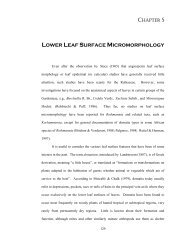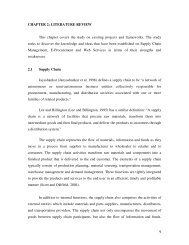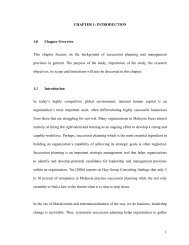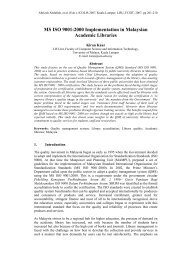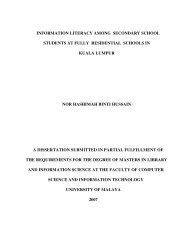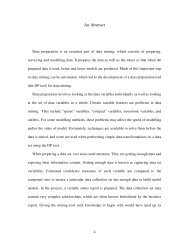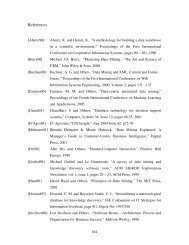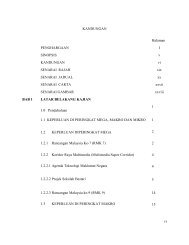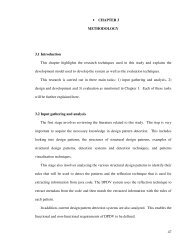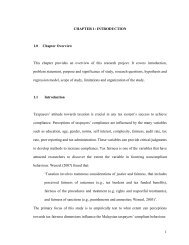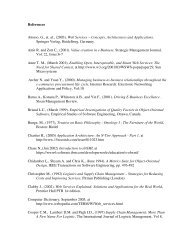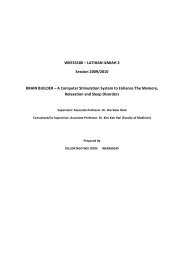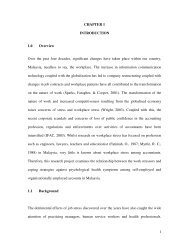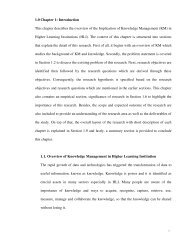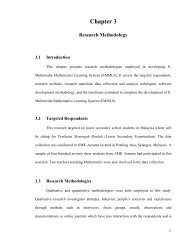CHAPTER 1 1.0 Introduction - DSpace@UM - University of Malaya
CHAPTER 1 1.0 Introduction - DSpace@UM - University of Malaya
CHAPTER 1 1.0 Introduction - DSpace@UM - University of Malaya
Create successful ePaper yourself
Turn your PDF publications into a flip-book with our unique Google optimized e-Paper software.
It is evident that the sub-consicious mind does play a part in code-switching. The<br />
bilinguals in Malaysia do code-switch from English to Malay to clarify a point. The<br />
question is why does code-switching take place at that particular point only and not<br />
anywhere else?<br />
Lim Soh Lan (2003-115.3) says that,<br />
“why the switch was made to clarify at that point……… it falls<br />
short <strong>of</strong> identifying the underlying socio-psychological<br />
motivation for a linguistic choice to fulfill a particular<br />
function”.<br />
A study done by Texas A & M International <strong>University</strong> (1997) shows that when<br />
bilinguals decipher code-switched utterances they switch <strong>of</strong>f their mind and only use<br />
one language to comprehend the sentence.<br />
“Thus, for a Spanish-English bilingual speaking English, the<br />
English linguistic system is turned on, whereas the<br />
SpanishEnglish system remains <strong>of</strong>f. However, if during the<br />
course <strong>of</strong> comprehending a sentence, a Spanish code-switched<br />
word is encountred, the mental switch must disable the English<br />
linguisticsystem, and enable the Spanish linguistic system”.<br />
Research done by the same university shows bilinguals understand code-switched<br />
words quickly if there is a phonological overlap between the two languages. Other<br />
factors that influence the recognition <strong>of</strong> code-switch words are context, phonetics,<br />
homophonic and homographic words overlaping between the two languages.<br />
Furthermore, language dominance plays an important role in code-switching. In the<br />
U.S.A, Spanish-English bilinguals code-switch more, when they communicate in<br />
Spanish which is the first language. They code-switch little when they communicate<br />
in English which is their second language. Psycholinguists say that bilinguals retrieve<br />
English code-switched utterances faster than monolingual utterances when they listen<br />
to Spanish sentences. On the other hand, they are slower to retrieve Spanish code-<br />
switched words when they listen to English utterances.<br />
27


